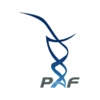Targeting Serine and Thiol Metabolism in Propionic Acidemia
Hilary Vernon, MD PhD, Johns Hopkins University
While it has been known for several decades that dysfunction of the enzyme propionyl-CoA carboxylase underlies propionic acidemia (PA), many key downstream metabolic adaptions to this primary defect are not well defined. In our research, we developed and studied a new cellular model of PA, with the goals of understanding how the cell is affected in PA, and to identify new pathways for potential treatment targeting.
We initially studied both protein expression in fibroblasts (skin cells) from individuals with PA, and metabolites in urine from individuals with PA, and discovered changes in pathways related to serine metabolism. Serine is an important amino acid that is involved in the synthesis of folate intermediates, glutathione, and other important cellular metabolites. Serine metabolism is of particular interest because it has also been shown recently to be dysregulated in other mitochondrial diseases, and there is a growing interest in how to target this pathway for therapeutic intervention.
In order to more closely study these findings, we developed a new cellular model of propionyl-CoA carboxylase deficiency, where we used CRISPR technology to mutate the PCCA gene in a kidney cell line called HEK293. This new model cell line has important biochemical hallmarks of PA, including absence of the PCCA protein, elevated propionyl-carnitine, very low methylmalonyl-carnitine, and elevated glycine. We discovered that when these cells are in the growth phase, they express genes involved in serine synthesis at higher levels than cells that have normal propionyl-CoA carboxylase activity. We further discovered that the PA cells are very sensitive to deprivation of serine in their culture media, and grow slower than cells with intact propionyl-CoA carboxylase activity. This growth abnormality is not seen when the cells are grown in media that contains serine. Interestingly, we looked at these same pathways in a CRISPR model of methylmalonic acidemia, a closely related disorder to PA, and while we found some overlap in sensitivity to serine, the gene expression patterns we different. This highlights the biochemical uniqueness of PA. Currently, we are completing flux metabolomics studies in these cells, which will determine exactly what this serine is being metabolized to, and we expect these experiments to be completed by the end of August. In our next steps, we plan to study how treating the cells with different metabolites may alleviate this serine growth defect.
We would like to sincerely thank the Propionic Acidemia Foundation for supporting our research. The funding we received has led to important breakthroughs in our work, and we are excited to continue to move this research forward in the coming years.
updated September 2018
